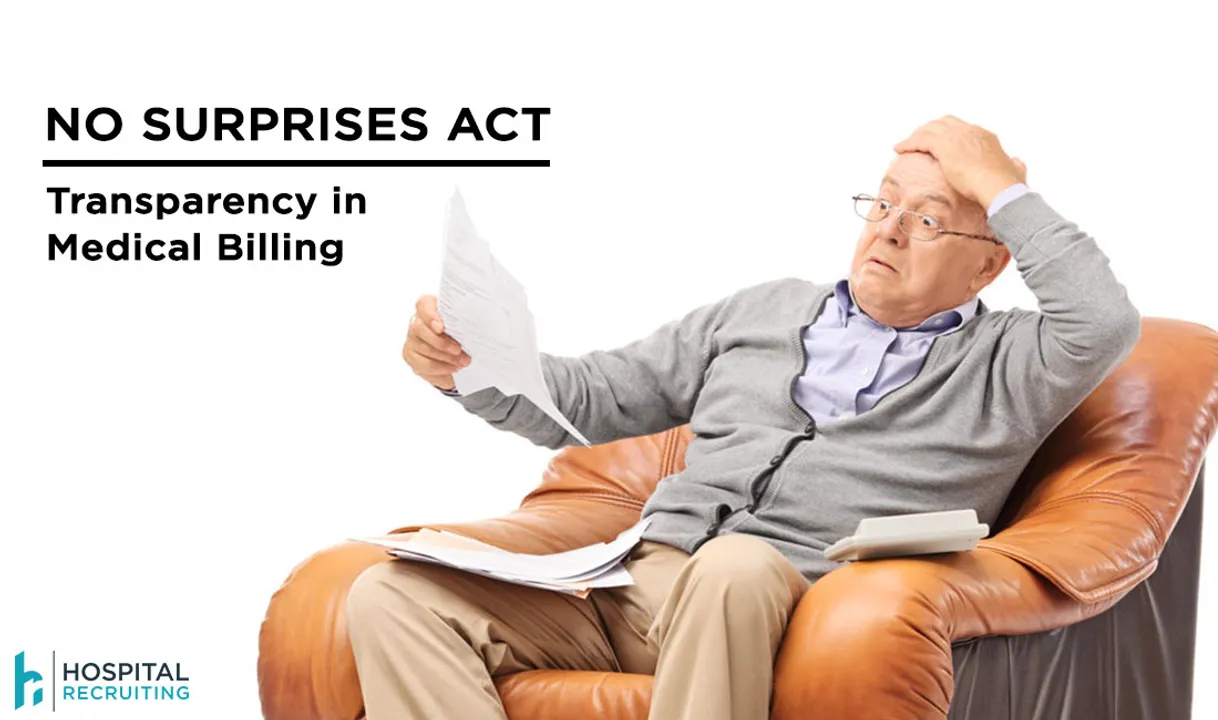No Surprises Act: A Physician's Perspective

You double over one evening with excruciating, debilitating abdominal pain. You’re brought to the hospital either by auto or air ambulance, panicking. You really think this is it. Thankfully, in just the nick of time, the surgical team, general surgeon, and anesthesiologist prep, gown, sedate, and intubate you. They swiftly remove your infected appendix and save your life. You go home a little sore, but at least you’re alive. If you’re lucky, you have health insurance, whether it’s the Cadillac plan or just catastrophic. Regardless, you thank the stars and rest easy, knowing insurance will cover most of the bill.
Until they don't.
Six months later, you get a bill for $40,000+ for the emergency transit. Turns out the general surgeon was within network, but the anesthesiologist, who works at the same hospital, is out of network. (A study published in JAMA reports that 7 out of 10 Americans undergoing surgery have no idea if the providers are in or out of network). Your job didn’t pay you for the sick leave. You already have credit card debt (more than half of Americans do), and certainly don’t have that kind of cash handy. In a moment, you’re bankrupt.
You’re alive, so you should be grateful, right? The near-death experience + crippling anxiety - financial stability = depression. Then of course, all the host of problems that ensue when depression suffocates your life.
Tragically, this is the reality for many Americans. We’ve all experienced and heard of these situations. It’s the reason you resist going to the hospital at all costs, literally.
Imagine going to Walmart and buying a microwave for $30. Then six months later, you receive a notice from Walmart that they miscalculated the price, and that it’s now worth $600. You must pay this within 30 days, or you will be sent to collections. At least in this situation you get a microwave. In healthcare, you could spend tens of thousands of dollars and still not come to an answer or solution to your medical problem. You can’t ask for a refund once services have been rendered.
Former President Trump signed the No Surprises Act (NSA) into law in Dec 2020, with the bill taking effect on Jan 1, 2022. This long overdue law intended to minimize surprise bills - something that victimizes over half of Americans.
While this is an enormous win for patients, solo practice physicians and providers will suffer. Unfortunately, this bill also favors the insurers. Let me explain.
Before rendering services, the provider must provide the patient with a customized Good Faith Estimate (GFE) according to a formal process to disclose costs. You cannot overly inflate this number. If the costs or diagnosis codes ever change, you must submit an updated GFE to the patient, which is costly and time consuming. Just one more bit of paperwork for small practices to swallow.
The No Surprises Act shifts the negotiation away from the patient (win) but lodges the argument squarely between insurance and the provider (loss). Insurance companies will determine how much to pay the provider. They could lowball, resulting in baseball style arbitration and stalemate negotiations.
A National Independent Dispute Resolution System has been created to help alleviate these disputes, but solo practice providers do not have the time nor the resources to litigate against large insurance carriers. Because large hospitals and practices can afford and absorb the costs/loss involved in litigation, this will attract more in-network patients, effectively suffocating smaller practices.
The AMA is already suing, and private/solo practice physicians are up in arms. I anticipate many revisions and several years before the system finds a suitable balance, if we can even call it that. The scale hasn’t been tipped in favor of solo practice providers in nearly a decade.
In closing, while I appreciate the win for patients, it comes with a large opportunity cost. Unless some serious changes are made, the NSA carries the potential to wipe out private practice physicians due to burdensome paperwork and decreased payout rates.
The only reasonable solution is for providers to simply switch to cash pay and forgo insurance entirely. Unfortunately, this move on a large scale reduces access to care and favors those in higher socioeconomic brackets.
Admittedly, the NSA feels a bit like a back handed compliment.
Related Posts
